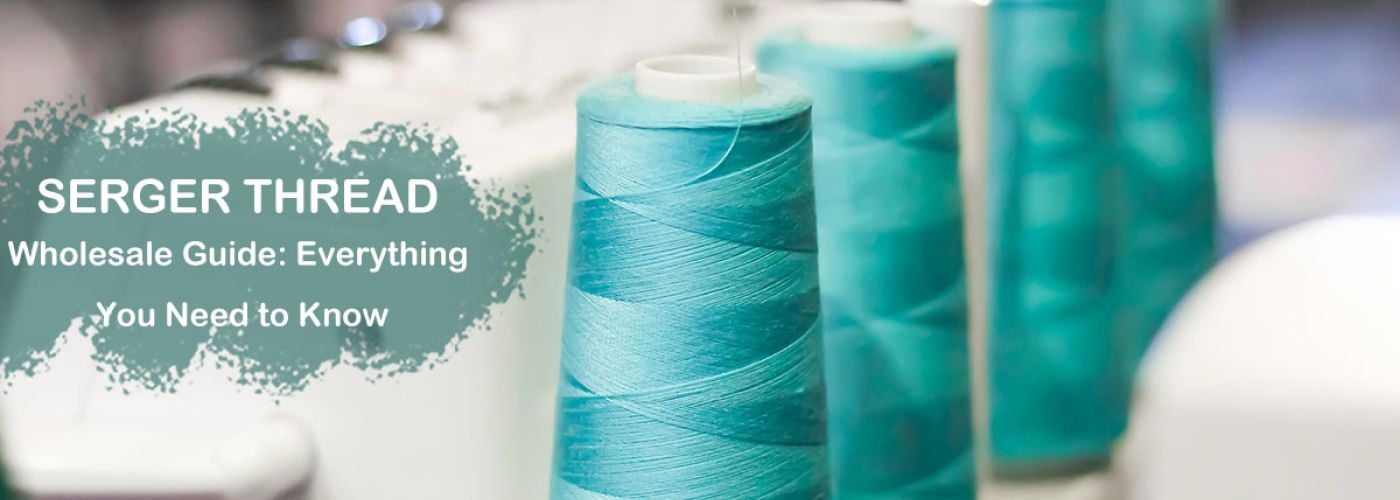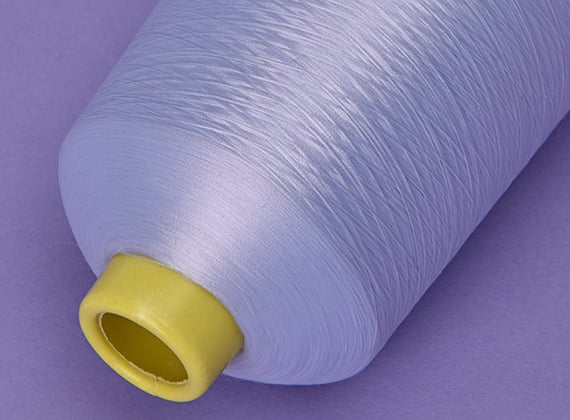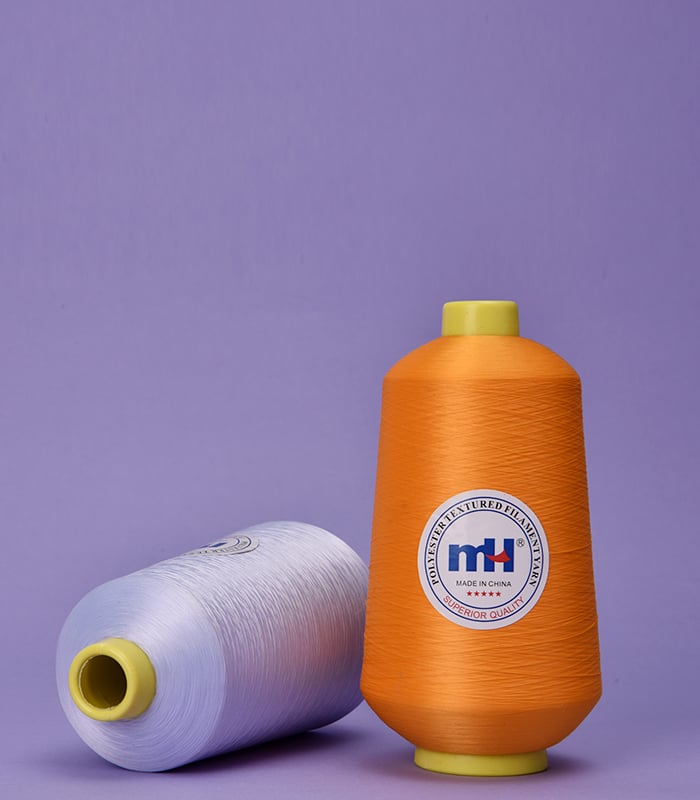
Serger Thread Wholesale Guide: Everything You Need to Know
If you’re a wholesaler, fashion manufacturer or purchasing agent in the textile industry, knowing the ins and outs of serger thread and overlock thread made specifically for these machines will make a big difference to your production processes. This guide will cover definitions, uses and best practices for selecting and handling serger threads, with info on popular brands, industrial machines and troubleshooting common problems.
1. What is Serger Thread

Serger threads are for use with serger or overlock machines so are an essential component for any sewing or crafting project that uses these machines. Unlikeregular sewing threads, serger threads are designed to withstand high speeds and tensions without fraying or breaking so a smooth and efficient sewing process.
One of the key features of serger threads is their lightweight and super strong construction which allows them to move freely at very high speeds. This makes them perfect for use with serger machines which are designed to finish seams and prevent fraying quickly and efficiently.
Serger threads come in various weights and colours so you can match them to different fabrics and projects. Polyester and nylon are the common materials used to make serger threads, polyester is a popular choice because of its strength, durability and colour fastness.
In addition to their strength and durability, serger threads are also low lint which means the machine mechanisms will stay clean and reduce the risk of thread breakage. Perfect for sewers who value convenience and ease of use.
In summary, serger threads are a must have for anyone who uses a serger or overlock machine. Their strength, durability and low lint makes them an essential component for any sewing or crafting project that uses these machines. With so many colours and weights to choose from, serger threads offer the flexibility and versatility sewers need to do many projects with ease.
1. Serger Thread vs Overlock Thread
Firstly, let’s clear up a common industry confusion—what’s the difference between serger thread and overlock thread?
Polyester and nylon are the common materials used to make serger threads, polyester thread is a popular choice because of its strength, elasticity and colour fastness during commercial washing. These properties makes polyester thread suitable for many sewing applications, durability and colour fastness.
1.1 What is Serger Thread?

Serger thread is a lightweight thread for use in serger machines also known as overlock machines. It’s thinner than regular sewing thread so can be stitched at high speeds without breaking. Serger thread is used to create professional seam finishes, edge stitching and stretchable seams in garments. Its structure minimizes bulk while still providing durability.
1.2 What is Overlock Thread?
Overlock thread is another name for serger thread. The two are interchangeable as they refer to the threads used in machines that overlock (a technique to finish raw fabric edges). Some professionals may refer to “overlock thread” when talking about certain applications but “serger thread” is more common in the US.
1.3 The Main Difference
There is no core difference between serger thread and overlock thread—both refer to the same product. The difference is just a matter of regional language. For clarity, the threading properties, machine compatibility and applications are the same regardless of the terminology.
2. How to Choose the Right Thread for Your Industrial Machines
Choosing the right serger thread is important for smooth operation. Here are the key points to consider.
2.1 Serger Thread Brands
While there are many thread manufacturers worldwide, some brands stand out because of their quality and reliability. Look for products that offers strength, consistent quality and many colours. Here are some popular ones:
-
Coats Clark
-
Gütermann
-
Madeira
-
Maxi-Lock (industrial buyers’ preferred choice because of its affordability and performance)
-
AE (American Efird)
These brands offer serger threads for professional use, for high speed overlocking.
2.2 Serger Thread Types, Sizes and Applications
-
Types:
-
Polyester – Strong, flexible and versatile for most fabrics.
-
Nylon – For stretchy fabrics like activewear.
-
Cotton – For lightweight fabrics like linens, for softer finish.
-
-
Sizes: The thread size is often expressed in Tex or Weight (Wt). For industrial serger machines, Tex 27 or 40 or weights around 50 Wt are common.
-
Applications:
-
Finer threads (e.g. Tex 27) for lightweight fabrics like chiffon or silk.
-
Stronger threads (e.g. Tex 40+) for tougher materials like denim or canvas.
-
2.3 Industrial Serger Machine Brands
Good serger threads are only as good as the machine it’s used with. Here are some popular industrial serger machine brands:
-
JUKI: JUKI machines are known for their durability and versatility, JUKI sergers are widely used in garment manufacturing.
-
Brother: Brother sergers are famous for their advanced stitch options and reliability under high speed production.
-
Bernina: While they are famous for sewing machines, Bernina also has heavy duty overlock machines for industrial use.
-
Baby Lock: Baby Lock sergers are known for their innovative features like air threading and auto tension adjustment.
When choosing thread for your machine, always check the manufacturer’s guidelines for compatibility.
2.4 What thread to use with serger?
Polyester thread is the best option because of its strength, flexibility and can handle stretching during high speed serging. Maxi-Lock and Gütermann polyester threads are great choices.
2.5 What weight is the best serger thread?
50 Wt is the most common thread weight for sergers, a good balance between durability and compatibility for most fabrics. For lightweight fabrics 60 Wt may be better.
2.6 Can I use regular thread in a serger?
While you can use regular threads in a serger, it’s not recommended because they are bulkier and may not handle the machine’s high speed. Using serger threads minimizes breakage, lint build up and uneven stitching.
2.7 How many spools of thread do I need for a serger?
Most serger machines require 3 to 4 spools of thread for standard use. Some advanced projects like rolled hem may require specific spool configuration. Make sure to buy enough thread sets to match your machine’s requirement.
3. Problems when using serger threads on industrial machines
Even with good serger threads and machines, problems can occur. Here are some common issues and how to fix them:
3.1 Thread breakage
Thread breakage is often caused by:
-
Using low quality thread that can’t handle high tension or speed.
-
Incorrect threading of the machine.
-
Worn out tension discs or thread path issues.
Solution: Always use high quality serger threads from well known brands, follow the machine’s user manual for threading and maintain your serger regularly.
3.2 Uneven or weak seams
Seams that are uneven or weak are caused by:
-
Poor tension setting on your serger machine.
-
Using thread of different thickness or quality.
-
Wrong needle or thread for the fabric.
Solution: Adjust the tension according to thread and fabric type and make sure needles and threads are specifically designed for industrial serging. Always test on scrap fabric before starting production.
3.3 Lint build up
Serger threads especially cotton blend types can produce a lot of lint that accumulates in the machine and can cause skipped stitches or machine damage over time.
Solution: Use polyester or nylon based serger threads which produce less lint. Clean and oil your machine regularly to prevent long term damage.
3.4 Color fading or misalignment
Threads that fade quickly or don’t match your fabric design can ruin the final product.
Solution: Invest in colorfast, high quality serger threads. Check a color chart for accurate ordering and make sure your supplier provides threads that meet industry color standard.
Conclusion
Knowing serger thread and usage will improve your production and give you good results in your finished products. Whether you’re buying from premium brands or troubleshooting an issue with your industrial machine, knowledge is key.
Need bulk serger thread? Work with suppliers who provide good quality and support to keep you ahead in the fashion manufacturing game.
Knowing serger threads and machines is one thing. Using it is another.
 Whatsapp:
Whatsapp: